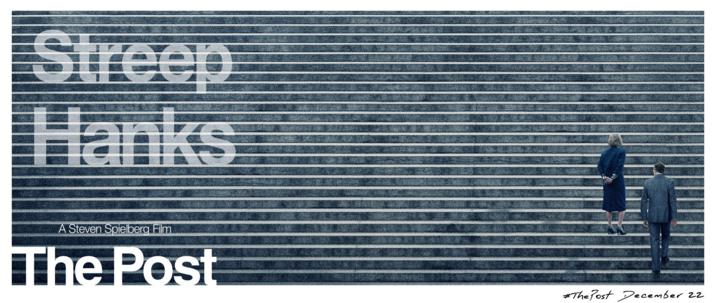The Steven Spielberg-directed movie The Post (2017) is showing in a theater near you. Starring for the first time with Spielberg is actress Meryl Streep as well as co-star Tom Hanks, who works with the visionary director of Jaws (1975) for the fourth time.
 (Meryl Streep)
(Meryl Streep)
The film tells the story of a cover-up of the background for the involvement of the United States in what is known in America as the Vietnam War. In overcoming a cover-up of the background for being in that war, two leading newspapers battle over the political intrigue of U.S. Presidents Dwight D. Eisenhower, John F. Kennedy, Lyndon B. Johnson, and Richard Nixon in publishing material that we see is documented from the opening scenes of the movie.
As indicated in the current Biography listing for Steven Spielberg for the Biography (1987- ) series and its related website:
“The movie centers on the actions of The Washington Post publisher (Streep) and editor (Hanks) as they attempt to go public with the Pentagon Papers, a trove of government secrets, over the objections of President Richard Nixon‘s administration.”
Streep plays Katherine (Kay) Graham, who takes over publishing responsibilities for The Washington Post after the death’s of her father and former publisher Eugene Meyer and then her publisher husband Phil Graham. Much of the anxiety over gender roles for her generation were central in the story of The Post by design.
 (Tom Hanks)
(Tom Hanks)
That the movie tackled the cover-up that seemingly ends under Richard Nixon’s presidency is due to Kay Graham‘s bravery in choosing to publish the editorial work of Ben Bradlee (played by Hanks) as well as the reporting work of Ben Bagdikian (played by Bob Odenkirk). It was Bagdikian that gets the classified Pentagon Papers after the Nixon Administration successfully sued The New York Times to stop publishing on this subject.
 (Bob Odenkirk)
(Bob Odenkirk)
The subject of a press free from an over-stepping government concern is topical from a U.S. and world political history. The subject of fake news was a point-of-contention in the 2016 U.S. Presidential Election. Tension between the current administration and the press remain strong, and was a decisive trope raised within The Post. I again stress that the push and pull between the press and the presidents feels topical. That the figure of a strong female example (Streep as Kay Graham) was explored also bears repeating as relevant in today’s political and social American landscape. The presented example was thoughtfully raised.
I was pleased with the movie, and my feeling is that the movie will likely be recognized in the Academy Awards nomination season. This movie definitely examines political subjects, though I find the end product less overtly personal or politically intimate than Spielberg works such as Munich (2005), Saving Private Ryan (1998), or Schindler’s List (1993) felt.
 (Steven Spielberg)
(Steven Spielberg)
That there is a thing known as The Pentagon Papers as well as a presence for The Washington Post today, in a sense, tells you something that you should know about how the movie works out. There is a disclosed ruling about whether publishing The Pentagon Papers was legal. There is an outcome for whether Kay Graham and the newspaper survived and prospered under Graham family control. Overall, I found this movie pleasing while close to satisfying without rising to the level of must-see cinema.
Matt – Monday, January 15, 2018.
